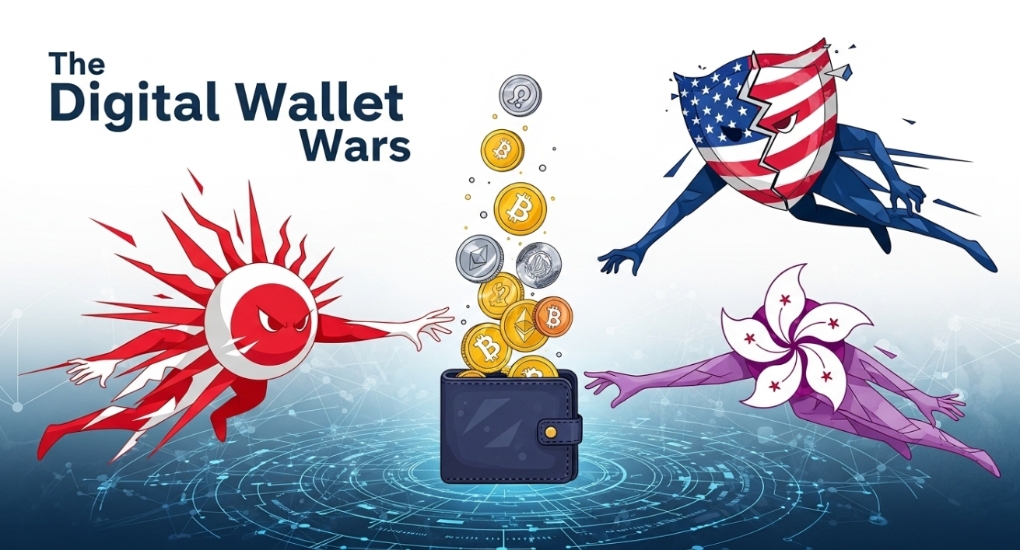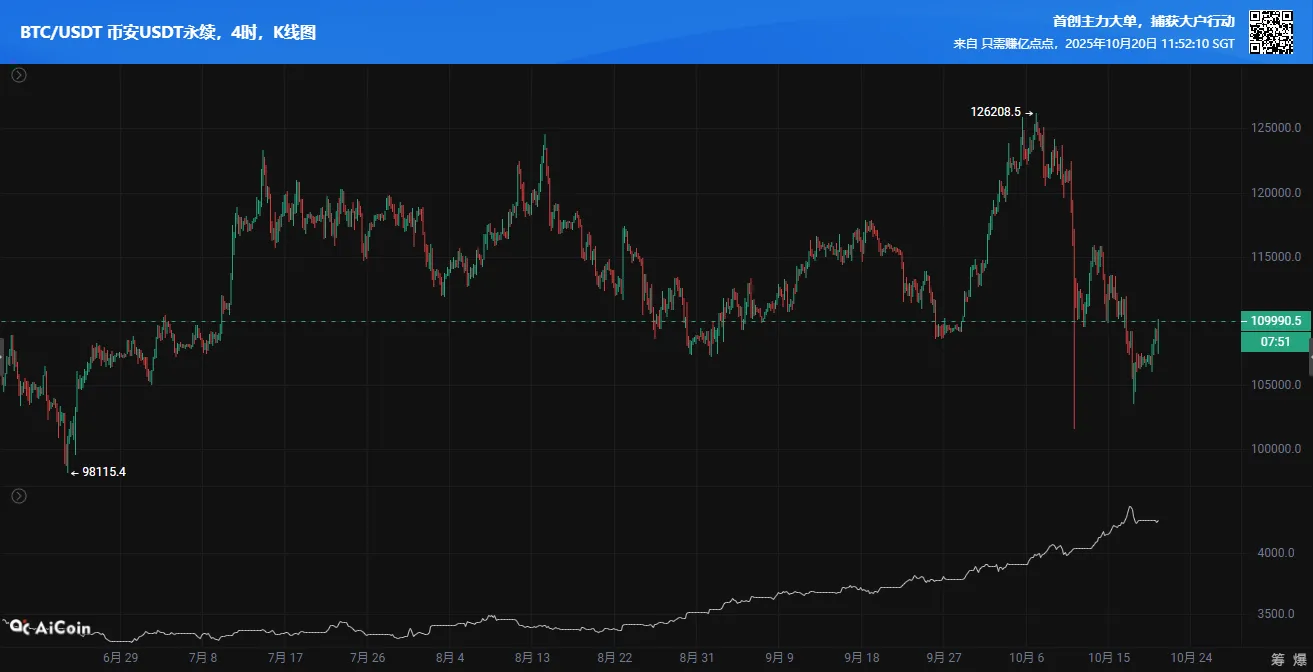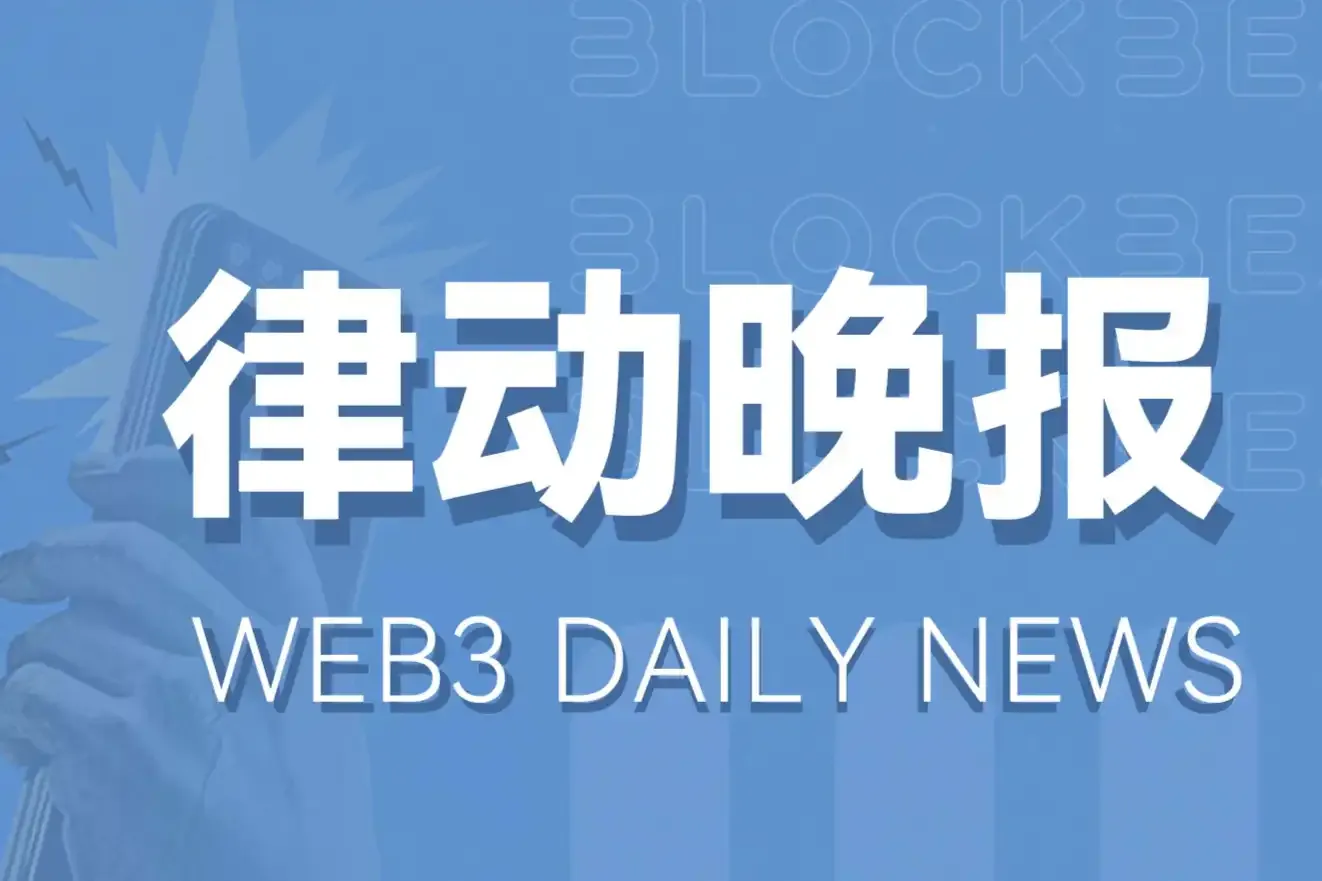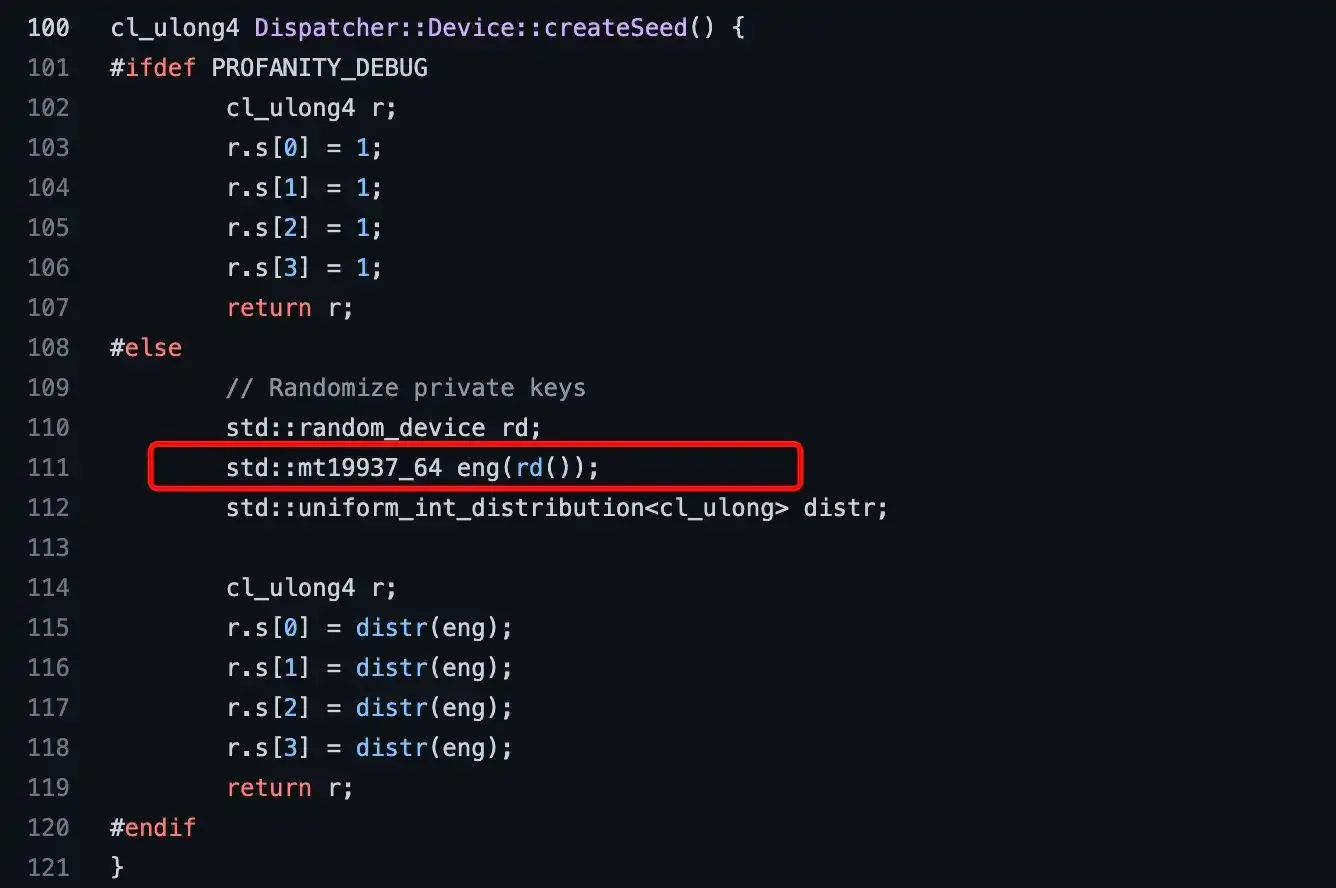Japan boldly embraces, the United States struggles to balance, and Hong Kong cautiously tightens; the regulatory paths for digital currencies in these three financial centers are shaping the future of the global financial landscape. From Tokyo to New York to Hong Kong, the game of digital currency regulation is unfolding in distinctly different ways in these three major global financial hubs.
Three paths, three futures; the outcome of this regulatory race will reshape the global financial landscape.

01 Global Digital Currency Regulatory Landscape Transformation
The year 2025 marks a watershed moment for digital currency regulation. Major financial centers are rolling out targeted policies, signaling that digital currencies have moved from the margins to the mainstream financial system.
In 2025, Japan's Financial Services Agency (FSA) radically shifted its conservative stance, aggressively promoting reforms that allow banks to directly hold and trade cryptocurrencies. Meanwhile, the U.S. Securities and Exchange Commission (SEC) launched a large-scale investigation into 212 publicly listed companies, focusing on whether their Bitcoin treasury strategies involved insider trading. In Hong Kong, despite the official implementation of the Stablecoin Ordinance, tech giants like Ant Group and JD.com have suspended their stablecoin issuance plans under regulatory intervention.
These differences are not only reflected in the level of bank participation, stablecoin regulation, and tax policies but also highlight fundamental distinctions in how various parties perceive the essence of digital currencies.
02 Japan: The Radical Reformer Embracing Change
Japan is advancing digital currency regulatory reforms with an unprecedented open attitude.
● Deep Bank Participation: The FSA is reviewing relevant regulations to allow banks to hold cryptocurrencies like Bitcoin for investment purposes. This policy shift will fundamentally change the current situation where banks are effectively prohibited from holding cryptocurrencies due to volatility risks.
At the same time, banking groups may be allowed to register as licensed "cryptocurrency exchange operators," directly providing trading and custody services. This transformation will break the current limitation that requires banks to establish independent companies to participate in cryptocurrency business.
● Stablecoin Innovation: In the stablecoin sector, Japan has relaxed collateral requirements, allowing stablecoin issuers to use short-term government bonds and time deposits (up to 50% of reserves) instead of 100% cash collateral.
This change paves the way for Japan's three major banking groups—Mitsubishi UFJ Financial Group, Sumitomo Mitsui Banking Corporation, and Mizuho Bank—to collaborate on issuing yen-pegged stablecoins.
● Tax System Reform: To attract institutional investors, Japan has undertaken significant tax reforms, setting a unified capital gains tax of 20% on cryptocurrency profits, replacing the previous progressive tax rate of up to 55%.
This makes Japan one of the most cryptocurrency-friendly jurisdictions in the world.
● Insider Trading Ban: More notably, Japan is amending the Financial Instruments and Exchange Act (FIEA) to prohibit insider trading of digital assets. The new regulations will empower the Securities and Exchange Surveillance Commission (SESC) to investigate suspicious transactions and impose fines.
03 United States: A Contradiction of Enforcement and Innovation
In contrast to Japan's systematic reforms, the digital currency regulation landscape in the United States is more complex.
● Large-Scale Investigative Actions: In early 2025, the SEC and the Financial Industry Regulatory Authority (FINRA) jointly launched an investigation into 212 publicly listed companies that announced plans to include Bitcoin in their treasury strategies.
Regulators are focusing on unusual stock price fluctuations before major policy announcements, with the investigation involving companies planning to raise approximately $102 billion for cryptocurrency allocations.
● Typical Case: During the investigation, the publicly listed company Eightco saw its stock price soar over 5,600% within a week after announcing plans to increase its holdings in Worldcoin and consider including Ethereum in its treasury stock, drawing the SEC's attention.
This case highlights the severity of insider trading in the digital currency sector.
● Regulatory Framework Reconstruction: Under the Trump administration, the U.S. is reconstructing its digital asset regulatory framework. The Executive Order on Ensuring the U.S. Leadership in Digital Finance, signed in January 2025, announced the establishment of a new digital asset regulatory system and explicitly prohibited the research and development of central bank digital currencies.
At the same time, the executive order abolished the previous administration's digital asset policies and established a presidential working group on digital asset markets led by the White House's Special Advisor on Artificial Intelligence and Crypto Affairs.
● Regulatory Uncertainty: Nevertheless, the SEC's stance on cryptocurrency regulation in 2025 remains "elusive." While the regulatory agency has shifted from strict enforcement to systematic rule-making, the cryptocurrency industry still exists in a legal gray area.
04 Hong Kong: A Cautious Exploration of Compliance
Hong Kong has taken a different path in digital currency regulation compared to Japan and the United States, characterized by active legislation and cautious advancement.
● Stablecoin Regulatory Breakthrough: In 2025, Hong Kong passed the Stablecoin Ordinance, establishing a licensing system for issuers of stablecoins backed by fiat currencies. The ordinance officially took effect on August 1, 2025.
According to the new regulations, any issuance of stablecoins backed by the Hong Kong dollar, whether within or outside Hong Kong, must obtain permission from the Hong Kong Monetary Authority.
● Mainland Regulatory Intervention: However, as Hong Kong established its stablecoin regulatory framework, Chinese tech giants, including Ant Group and JD.com, have suspended their plans to issue stablecoins in Hong Kong.
These companies paused their stablecoin issuance plans after receiving directives from the People's Bank of China and the National Internet Information Office. The underlying concern is that regulators fear allowing tech companies and brokerages to issue any form of currency.
● Sandbox Program and Application Status: The Hong Kong Monetary Authority launched a sandbox program for stablecoin issuers as early as 2024, selecting three groups of participating institutions from over 40 applications.
As of the end of September 2025, a total of 36 institutions had submitted applications for stablecoin licenses. HKMA Chief Executive Eddie Yue stated, "The licensing for stablecoin issuers has a relatively high threshold, and we expect only a few licenses to be granted in the initial phase."
05 Comprehensive Comparative Analysis of Policies in Three Countries
There are significant differences in the digital currency regulatory paths of Japan, the United States, and Hong Kong. The table below clearly compares the core differences in policies across the three regions:
Regulatory Dimension
Japan
United States
Hong Kong
Bank Participation Level
Allows banks to hold and trade cryptocurrencies
Strict restrictions, focusing on investigating banks involved in cryptocurrency trading
Mainly through specific banks regulated by the Monetary Authority
Stablecoin Regulation
Allows 50% non-cash reserves, promotes yen stablecoins
Case-by-case review, lacking a unified framework
Mandatory licensing system, strict separation of reserve assets
Tax Policy
20% unified capital gains tax
Complex and unclear
Specific policies yet to be clarified
Insider Trading Regulation
Explicitly prohibits insider trading in cryptocurrencies
Extends applicability based on traditional securities laws
Not yet specifically regulated
Regulatory Orientation
Actively embraces, systematically integrates
Coexistence of enforcement and innovation, lacking a clear framework
Legislation precedes, cautiously advancing, sandbox testing
Main Concerns
Systemic risk control
Investor protection and market manipulation
Currency issuance rights and financial stability
Source: AiCoin Compilation
From the comparison, it is evident that Japan has adopted the most actively open attitude, fully integrating digital currencies into the existing financial system; the United States is swaying between enforcement and innovation, lacking a consistent framework; while Hong Kong is legislation-first, cautiously exploring.
The differences in regulatory paths among the three countries stem from their respective financial environments, regulatory traditions, and political systems.
● Japan's Choice: Japan's adoption of a radically open strategy stems from its ambition to enhance Tokyo's status as an international financial center through digital currencies. At the same time, the collaboration of Japan's three major banking groups on the yen stablecoin project reflects traditional financial institutions' desire to lead digital currency innovation.
● America's Dilemma: The complexity of U.S. regulation arises from its multi-regulatory system and federal structure. The SEC and FINRA's large-scale investigations, along with the Trump administration's executive order on digital assets, reflect America's attempt to address market abuse issues without hindering innovation.
● Hong Kong's Balancing Act: Hong Kong's cautious advancement reflects its unique status as a Special Administrative Region of China. On one hand, Hong Kong aims to solidify its position as an international financial center through legislation like the Stablecoin Ordinance; on the other hand, concerns from mainland regulatory agencies about private control of digital currencies also delineate the boundaries for Hong Kong's exploration.
06 Regulatory Competition and Future Trends
The regulatory paths of Japan, the United States, and Hong Kong not only reflect current policy choices but may also shape the future global digital currency landscape.
● Japan's comprehensive reforms give it a head start in attracting institutional investors. Measures such as tax reforms and insider trading bans have made Japan one of the most attractive markets for institutional capital.
● The United States, despite regulatory uncertainties, remains one of the largest digital currency markets globally. The Trump administration's executive order suggests a potential shift towards a more inclusive regulatory attitude, but this transformation will be slow and complex.
● Hong Kong is at the forefront of stablecoin regulation, with its clear licensing system providing a transparent compliance framework for the industry. However, interventions from mainland regulatory agencies may also limit Hong Kong's exploratory space in the digital currency sector.
The future competitive landscape may change due to regulatory coordination among countries. Japan's ban on insider trading in cryptocurrencies and the SEC's investigations into digital assets may become the foundation for global regulatory standards.
As digital currencies accelerate their integration with traditional finance, regulation has transcended simple risk prevention and become a core element in shaping national financial competitiveness. Japan's active embrace, America's difficult balance, and Hong Kong's cautious exploration are, in fact, three large-scale experiments of different financial systems in the digital age.
Join our community to discuss and grow stronger together!
Official Telegram community: https://t.me/aicoincn
AiCoin Chinese Twitter: https://x.com/AiCoinzh
OKX benefits group: https://aicoin.com/link/chat?cid=l61eM4owQ
Binance benefits group: https://aicoin.com/link/chat?cid=ynr7d1P6Z
免责声明:本文章仅代表作者个人观点,不代表本平台的立场和观点。本文章仅供信息分享,不构成对任何人的任何投资建议。用户与作者之间的任何争议,与本平台无关。如网页中刊载的文章或图片涉及侵权,请提供相关的权利证明和身份证明发送邮件到support@aicoin.com,本平台相关工作人员将会进行核查。




